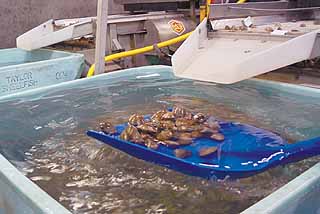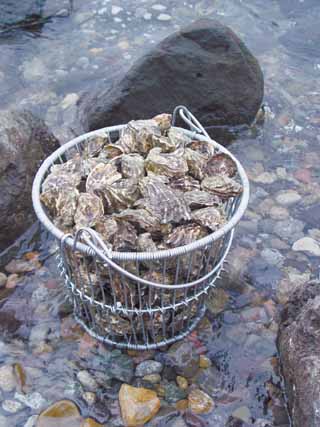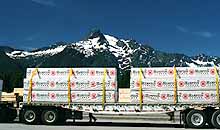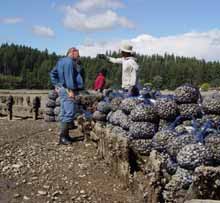
Surveys
DJC.COM
August 3, 2006
Navigating our water right application process
Golder Associates

Pitre
|
Water is needed for almost any significant physical project, whether a housing development, resort, industrial building or food-processing facility. Connecting to a water system may be an option if there is one in the area, and with it will come a regular utility bill.
In some cases there is no nearby water system, the water system is not able to provide the quantity of water needed, or the project owner wishes an alternative to a utility bill.
In addition to the engineering considerations, running an independent system will require a water right.
Getting a water right is generally difficult. A new water right may be obtained from the state Department of Ecology, or an existing water right may be acquired on the market.
Acquiring an existing water right usually involves changing the right (within limits), such as where the water comes from, the place of use, or the purpose of use.
New water rights and changes to water rights are only allowed if they do not impair other water rights or the environment, such as streamflows. Making such a determination is sometimes difficult.

Photo by Jon Rowley Taylor Shellfish uses water efficiently from a new water right to rinse and prepare harvested shellfish for the market. |
Uncertainty in the evaluation of applications and understaffing at Ecology can result in lengthy delays in application processing. There are numerous cases of pending applications that are 10 years old and older on which still no action has been taken. Protests from third parties such as environmental, tribal or private citizens can lengthen the delay.
New water rights

Cultivating shellfish in Puget Sound further improves water quality by the filtering actions that these mollusks provide. |
As a result of state legislation several years ago, Ecology prioritized processing change applications above applications for new water rights. In general, Ecology will not allocate staff resources to process new water right applications.
A cost reimbursement program was established in 2000 as an alternative avenue to having an application for a new water right processed by Ecology staff. In this program, Ecology retains a consultant to evaluate the application, and the applicant reimburses Ecology for the cost of the consultant. It is usually advisable that the applicant also retains a consultant and/or legal counsel to represent his or her interests and navigate the process.
The cost of Ecology’s consultant for processing a single application may vary from $10,000 to upward of $30,000, depending on the complexity and setting of the application. Also, because applications must be processed in the order received, the paying applicant must also pay for the concurrent processing of earlier applications that were submitted within the “same geographically relevant area.”
How the “same geographically relevant area” is determined is subjective. Because the larger the area, the more senior applications there may be that have to be processed, this determination is critical to the cost of the paying applicant. A paying applicant may solicit senior applicants to share the cost, although senior applicants are not obligated to pay.
Existing water rights
| How three local groups got their water rights | |||
There is no assurance of a water right application being acted upon. Variations in the application of agency policy and possible opposition can cause additional delays. The following are examples of how three Pacific Northwest businesses have navigated Washington’s water right application process.
|
The one-time or capital cost of an existing water right in Washington state is generally between $1,500 and $3,000 for the right to use an acre-foot per year, with occasional reports of sales outside of this range. A right for the continuous use of 1 million gallons a day at this price may cost between $1.7 million and $3.3 million.
Variables affecting the cost of a water right include location, limitations on the right, competition for the right, and other factors. A major assumption is that there is an appropriate water right available in the area where it is needed, which is not always the case.
Changes to an acquired water right are often desired, such as where the water comes from, place of use, and/or purpose of use. These changes must be formally obtained and one avenue is directly through Ecology. Although Ecology prioritizes the processing of change applications over applications for new water rights, there is rarely a commitment to process a change application within any time frame.
Two alternative avenues exist for processing change applications. One is the cost reimbursement process described above for new water right applications. When processing change applications, only senior change applications must be concurrently processed, and not applications for new water rights.
The other avenue is through water conservancy boards (WCB). Ecology allows counties to establish WCBs to pre-process change applications, but not applications for new water rights. Twenty-one of the state’s 39 counties have WCBs.
A WCB is a panel of three to five trained volunteers. Applicants are expected to provide the full analysis that Ecology would otherwise conduct for the evaluation of an application.
Speeding up the process
Change applications through WCBs may be as quick as six months, while one year is more typical with the cost reimbursement program.
An applicant can expedite the application processing by: requesting a pre-submittal consultation with Ecology staff; identifying potential protesters and configuring an application to minimize potential protests; and submitting an evaluation of the application with the original application.
Knowledge of the water resources setting of the requested application is critical. This includes other pending applications, water resource planning efforts, restrictions on types of new water use, instream flow regulations (these affect groundwater applications as well), habitat concerns such as salmon, identifying third party entities that are monitoring water right activities, and other factors. This knowledge may be obtained with a consultant and/or legal counsel retained by an applicant, and/or pre-submittal consultations with Ecology.
Ecology may also provide additional helpful direction, although experiences are variable. Any direction from Ecology is most likely to be fully qualified.
Resolving potential problems
Protests during the public notice period can slow the processing of applications. Therefore, identifying potential protesters ahead of time and preparing responses or submitting supporting materials that effectively respond to prospective protests can minimize delays. In some cases, directly approaching and discussing concerns with potential protesters can foster an open communication environment, establish goodwill and avoid confrontation.
Processing a water right requires the evaluation of potential impairment of other water rights or the environment by the proposed water use, among other points. During this evaluation, any problems identified must be resolved. For example, a proposed groundwater well is too close to another well, or impacts to streams are unacceptable.
Costly iterative communications may occur between Ecology and the applicant during this resolution process. Alternatively, the applicant may provide an evaluation to Ecology with the application addressing potential concerns with the intent of resolving any potential problems ahead of time.
The statutory authority of the cost reimbursement program expires on July 1, 2007. There have been 23 completed cost reimbursement contracts, some of which have involved as many as 40 multiple applications (i.e., applications within the same geographically relevant area that must be concurrently processed). There are currently 33 active contracts. The program may be renewed due to its popularity.
Chasing a water right is risky business and is not always justified. Having a Plan B is always advisable. In cases where a water right is obtained, it can be the green light for a project, significant savings and a worthwhile investment.
Chris Pitre is a water resources consultant specializing in water rights with Golder Associates in Redmond.
Other Stories:
- Mechanical engineers hop aboard the green bandwagon
- States keep their authority to regulate dams
- UW’s environmental strategy goes from grass roots to daily integration
- New rules for ‘innocent landowners’
- Washington banks on wetland mitigation
- Tapping into a sea of power
- Orcas: the next killer environmental issue?
- Minimize data handling to reduce errors
- Solvent spill? Know your cleanup options
- Fish to fly past the ‘Kirkland crawl’
- Getting the creosote out of Puget Sound
- Green Factor would change urban landscape design
- Spokane does brownfields on a grand scale
- Plan ahead for the new stormwater permit
- Local environment benefits from oil spill
- Conservation program saves money, landfill space
- Education centers show how to tread lightly on the environment
Copyright ©2009 Seattle Daily Journal and DJC.COM.
Comments? Questions? Contact us.


